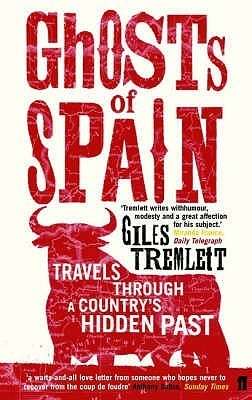
Ghosts of Spain: Travels Through a Countrys Hidden Past
Check my rate
| Main centres: | 1-3 business days |
| Regional areas: | 3-4 business days |
| Remote areas: | 3-5 business days |

| Main centres: | 1-3 business days |
| Regional areas: | 3-4 business days |
| Remote areas: | 3-5 business days |
Published by Faber and Faber, 2007, softcover, index, 436 pages, condition: new.
The appearance - sixty years after that war ended - of mass graves containing victims of Franco's death squads has finally broken what Spaniards call 'the pact of forgetting'. At this charged moment, Giles Tremlett embarked on a journey around Spain - and through Spanish history. Tremlett's journey was also an attempt to make sense of his personal experience of the Spanish. Why do they dislike authority figures, but are cowed by a doctor's white coat? How had women embraced feminism without men noticing? What binds gypsies, jails and flamenco? Why do the Spanish go to plastic surgeons, donate their organs, visit brothels or take cocaine more than other Europeans?
I very much enjoyed this book. Written by an English journalist and a longtime dweller in Spain, it does offer a very good insight into the Spanish way of thinking and how many events in the 20th and 21st century have shaped that. Obviously the bitter, brutal Civil war of the 1930s hangs over much of the way Spanish people react and the divisions are still deep.
The book is dense - it's not one you can skim through. But each chapter deals with another aspect of Spain or, in many cases, how a particular region views the idea of a Spanish nation. Catalonia, Galicia and the Basque country all get this treatment. But it's not all heavy going. The author also touches on Spain's attitudes to Flamenco, Sex, Football and more. I cant vouch for it's accuracy but it certainly appears that the author has 'gotten under the skin of Spain' and is offering the reader some very interesting insights into one of Europe's largest countries. Definitely worth a read.